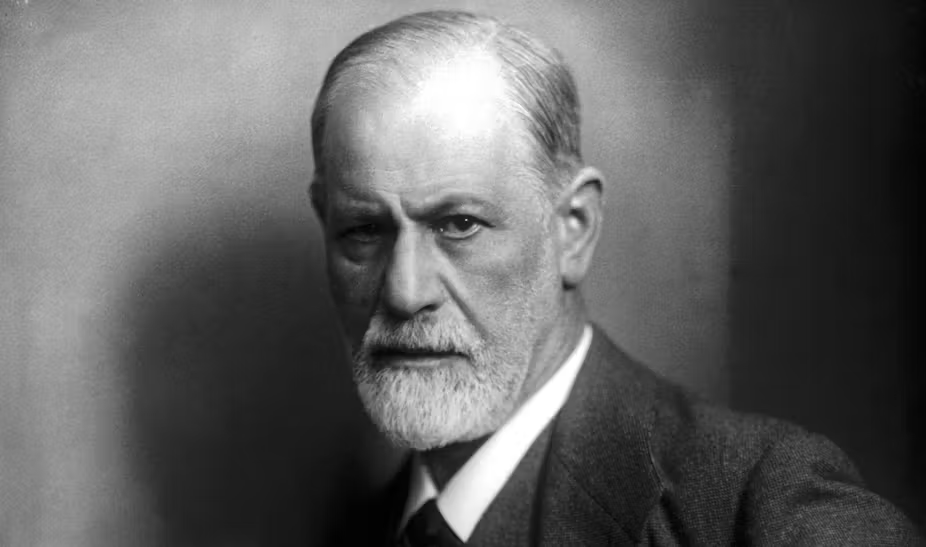Piaget’s Theory in Early Years: A Factsheet
Who was Piaget?

Jean Piaget was a Swiss psychologist who studied how children learn and develop. His theory of cognitive development is one of the most influential in the field of education.
Key Concepts
- Stages: Piaget believed children progress through four stages of cognitive development, each with distinct ways of thinking. The first two stages are most relevant to early years:
- Sensorimotor Stage (Birth – 2 years): Babies and toddlers learn through their senses and actions. They develop object permanence (understanding objects exist even when unseen).
- Preoperational Stage (2 – 7 years): Young children begin to think symbolically and use language, but struggle with logic and perspective-taking.
- Sensorimotor Stage (Birth – 2 years): Babies and toddlers learn through their senses and actions. They develop object permanence (understanding objects exist even when unseen).
- Schema: These are mental frameworks children use to organize information and experiences. They learn by assimilating new information into existing schemas (e.g., sucking on a new toy) and accommodating schemas when new experiences don’t fit (e.g., realizing a ball can roll under furniture).
- Play: Play is crucial for cognitive development. Through play, children experiment with schemas, explore their environment, and develop new ideas.
How does this apply to early years education?
- Focus on exploration and play: Provide opportunities for children to use their senses and interact with the world around them. This sensory play helps build schemas.
- Active learning: Create activities that encourage children to experiment, solve problems, and discover things for themselves.
- Concrete materials: Use manipulatives and real-life objects to help children understand abstract concepts.
- Open-ended questions: Encourage children to think critically and explore different possibilities.
Criticisms of Piaget’s Theory
- Stages may be too rigid and don’t account for individual differences.
- Underestimates children’s abilities to learn from social interaction.
Overall, Piaget’s theory provides valuable insights into how young children learn. By understanding these principles, educators can create environments that support children’s natural curiosity and cognitive development.

Vygotsky’s Sociocultural Theory in Early Years
Key Ideas
- Social Learning: Children learn best through interaction with others, especially adults and more knowledgeable peers.
- Zone of Proximal Development (ZPD): This is the gap between what a child can do independently and what they can achieve with support.
- Scaffolding: Adults provide temporary support (like scaffolding for a building) to help children learn new skills and concepts within their ZPD. This support is gradually reduced as the child becomes more competent.
- Language & Thought: Language plays a vital role in thinking and development. Children use self-talk (thinking out loud) to regulate their behavior and understand the world around them.
- Play: Play allows children to experiment, practice skills, and operate at a higher level than they might otherwise be able to.
Benefits for Early Years Settings
- Focuses on social interaction and collaboration in learning.
- Highlights the importance of talk and explanation in early learning.
- Encourages play-based learning as a powerful tool for development.
- Recognises the importance of tailoring support to each child’s individual needs.
Applications in Early Years
- Small group activities and discussions.
- Open-ended play experiences with adult guidance.
- Storytelling, singing, and rhymes.
- Encouraging children to explain their thinking.
- Providing differentiated instruction to meet children’s ZPDs.
Remember:
- Vygotsky believed that cultural context plays a big role in how children learn.
- Development is seen as a gradual process, rather than a series of fixed stages.
Montessori Theory in Early Years: A Factsheet

Philosophy
- Developed by Dr. Maria Montessori, an Italian physician and educator.
- Focuses on self-directed, hands-on learning through exploration and discovery.
- Believes children have an innate drive to learn and develop during sensitive periods.
Key Principles
- Respect for the Child: Freedom within boundaries to make choices and learn at their own pace.
- Prepared Environment: Classrooms are meticulously designed with specialized materials for development in all areas.
- Sensorial Learning: Engaging the senses is crucial for understanding and building knowledge.
- Internal Motivation: Fostering a love of learning through self-discovery rather than external rewards.
- The Role of the Teacher: As a guide and observer, facilitating learning and supporting individual needs.
Benefits for Early Learners
- Cognitive Development: Enhances problem-solving, critical thinking, and information processing skills.
- Social and Emotional Development: Promotes independence, self-confidence, and collaboration.
- Fine and Gross Motor Skills: Practical life activities and manipulatives refine motor control.
- Language Development: Spoken and written language skills flourish through exploration and communication.
Practical Applications
- Multi-aged classrooms (typically 2.5 to 6 years old).
- Emphasis on practical life skills like self-care and food preparation.
- Sensorial materials for exploration of math, science, and language concepts.
- Grace and courtesy lessons to build social responsibility.
Additional Points
- Montessori education is a holistic approach, nurturing the whole child.
- It aligns with current early years frameworks that emphasize child-led learning.
- Well-suited for children who thrive in a structured yet independent environment.
B. F. Skinner and Operant Conditioning: A Factsheet

Who: B. F. Skinner (1904-1990), a psychologist who championed the school of thought known as behaviourism.
What: Skinner is famous for his theory of operant conditioning, a type of learning that occurs through the consequences of behaviour.
Key Ideas:
- Reinforcement: Strengthens a behaviour, making it more likely to be repeated. There are two main types:
- Positive reinforcement: A desirable consequence is added after a behaviour (e.g., praise after a child completes chores).
- Negative reinforcement: An undesirable consequence is removed after a behaviour (e.g., taking an earache medication to stop the pain).
- Punishment: Weakens a behaviour, making it less likely to be repeated. There are two main types:
- Positive punishment: An undesirable consequence is added after a behaviour (e.g., a speeding ticket).
- Negative punishment: A desirable consequence is removed after a behaviour (e.g., losing playtime for bad behaviour).
- Shaping: Reinforcing successive approximations of a desired behaviour until the final behaviour is achieved (e.g., clicker training an animal).
- Schedules of Reinforcement: The timing and frequency of reinforcement impacts how quickly a behaviour is learned and how resistant it is to extinction (the fading of a learned behaviour).
Applications:
- Animal training
- Education (e.g., using praise and rewards to encourage desired learning behaviours)
- Therapy (e.g., modifying unwanted behaviours through reinforcement and punishment techniques)
- Self-improvement (e.g., setting up reward systems for achieving personal goals)
Criticisms:
- Oversimplifies human behaviour by neglecting the role of internal thoughts and motivations.
- Ethical concerns about using punishment, especially with positive punishment.
Further Learning:
- Search for “operant conditioning” or “Skinner box“.
John Dewey’s Theory: Learning by Doing

John Dewey, an American philosopher, psychologist, and educational reformer, developed a theory of education centred around the idea of experiential learning. Here’s a quick rundown of his key ideas:
- Learning through Experience: Dewey believed traditional rote learning wasn’t effective. True learning happens when we actively engage with the world around us. This could involve projects, experiments, problem-solving activities, or discussions based on real-world scenarios.
- Social Learning: Dewey emphasized the social aspect of learning. We learn best by interacting with others, sharing experiences, and reflecting together. He advocated for collaborative learning environments where students can discuss, debate, and build upon each other’s ideas.
- The Cycle of Inquiry: Dewey’s theory suggests learning follows a cycle. It starts with a problem or question that arises from experience. This is followed by investigation, data collection, and hypothesis building. Students then test their ideas, reflect on the results, and refine their understanding.
- Education for a Better Society: Dewey believed education should prepare students to be active and informed participants in a democratic society. Schools should be miniature democracies where students learn critical thinking, problem-solving, and collaboration skills.
Impact and Legacy:
Dewey’s ideas had a significant impact on educational practices, giving rise to the progressive education movement. His emphasis on hands-on learning, critical thinking, and social responsibility continues to influence educational philosophies today.
Maslow’s Hierarchy of Needs in Early Years

What is it?
Maslow’s hierarchy of needs is a theory in psychology that explains human motivation. It proposes that people have a set of needs in a hierarchical structure. Basic needs at the lower levels must be met before a person can move on to the needs at the higher levels.
How does it apply to early years?
The first four levels of Maslow’s hierarchy are particularly important in early childhood development:
- Physiological Needs (Base of pyramid): These are essential for survival, such as food, water, sleep, and shelter.
- Safety Needs: Children need to feel safe and secure in their environment, with consistent routines and predictable caregivers.
- Love and Belonging Needs: Children thrive on positive relationships with caregivers and peers. Feeling loved and accepted fosters emotional well-being and a sense of security.
- Esteem Needs: As children develop, they gain a sense of self-worth through positive reinforcement, opportunities for exploration and mastery of skills.
Why is it important?
Understanding Maslow’s hierarchy helps early years practitioners create environments that meet the fundamental needs of young children. When these needs are met, children are better equipped to learn, explore, and reach their full potential.
Additional Points:
- Maslow’s hierarchy is not always a rigid step-by-step process. Needs can overlap and fluctuate depending on the individual child and their circumstances.
- Some theorists have proposed additional needs at the top of the pyramid, such as the need for self-actualization (reaching one’s full potential). However, the focus in early years remains on the first four levels.
By meeting the basic needs outlined in Maslow’s hierarchy, early years settings can provide a strong foundation for children’s physical, emotional, and social development.
Freud’s Theory in Early Years: A Factsheet

Core Concepts
- Psychosexual Stages: Freud believed personality develops through five stages (Oral, Anal, Phallic, Latency, Genital) in early childhood, with each stage focusing on a different erogenous zone (area of pleasure). Successful navigation of these stages is crucial for healthy development.
- The Unconscious Mind: Freud divided the mind into three parts:
- Id: The primal, instinctive part driven by basic needs and desires.
- Ego: The rational part that negotiates between the Id and the Superego.
- Superego: The moral conscience that develops from societal rules and expectations.
- Fixation: If a child experiences a particularly stressful or pleasurable event in a stage, they may become fixated on that stage, impacting their personality.
Early Years Impact
- Emphasis on Early Experiences: Freud stressed the importance of a child’s first few years in shaping their personality. He believed experiences during this time lay the foundation for future thoughts, feelings, and behaviours.
- The Importance of Parenting: Freud viewed parenting styles as crucial in influencing a child’s development during each psychosexual stage. For example, overly strict toilet training during the Anal Stage could lead to an obsession with orderliness in adulthood.
Criticisms and Considerations
- Limited Scope: Freud primarily focused on sexual development, which some consider too narrow an explanation for personality formation.
- Focus on Unconscious Drives: The emphasis on unconscious desires has been criticized for neglecting the role of conscious choices and experiences.
- Gender Bias: Freud’s theories heavily focus on the Oedipal complex (boys’ desire for their mother and fear of their father) and lack a strong explanation for girls’ development.
Lasting Influence
Despite criticisms, Freud’s ideas sparked a revolution in understanding the human psyche.
- Importance of Early Childhood: His emphasis on early experiences continues to be relevant in child development studies.
- The Unconscious Mind: The concept of the unconscious mind has significantly impacted psychology, highlighting the role of hidden desires and motivations.
Further Exploration
- Sigmund Freud
- Psychosexual Stages of Development
Bandura’s Social Learning Theory in Early Years

Core Idea: Children learn by observing and interacting with others.
Key Concepts:
- Observational Learning (Modelling): Children watch and imitate the behaviours of others, especially adults and peers.
- Social Interaction: Learning is enhanced through social interaction and feedback from others.
- Self-Efficacy: Belief in one’s ability to succeed influences motivation and behaviour. Children with high self-efficacy are more likely to try new things and persevere through challenges.
Benefits of Bandura’s Theory in Early Years:
- Highlights the importance of positive role models: Adults and caregivers can model desired behaviours for children to imitate.
- Emphasizes the power of social learning: Creating opportunities for collaborative play and interaction fosters learning.
- Recognizes the role of self-efficacy: Encouragement and positive reinforcement can build a child’s confidence and willingness to learn.
Applications in Early Years Settings:
- Teachers as role models: Demonstrate positive behaviours like patience, kindness, and problem-solving.
- Peer interaction: Encourage collaborative play and group activities to facilitate social learning.
- Positive reinforcement: Praise children’s efforts and celebrate their successes to build self-efficacy.
- Scaffolding: Provide support and guidance to help children learn new skills and gradually increase their independence.
Remember: Bandura’s theory suggests learning is a reciprocal process. Children not only learn from observing others, but their own behaviour also influences their environment and the behaviour of those around them.







